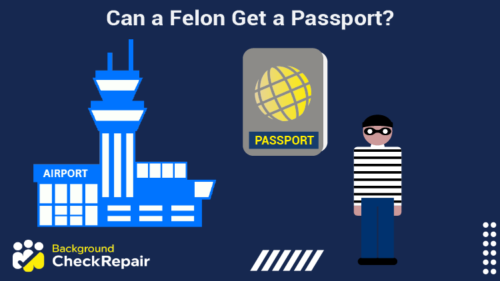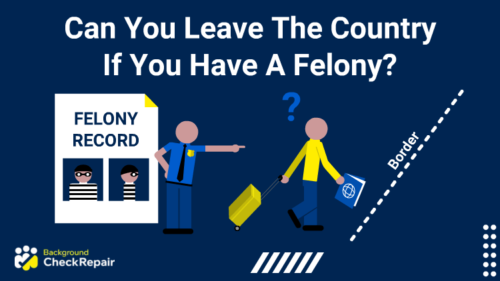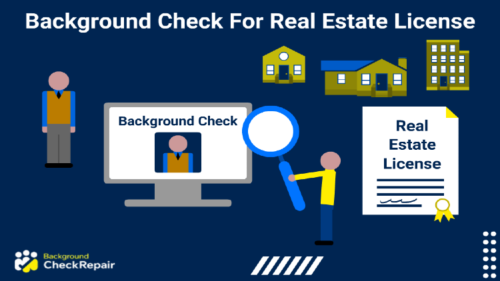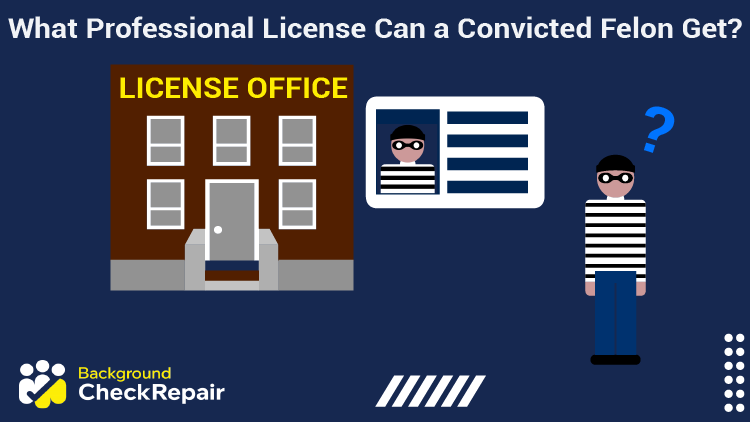
Landing a job with a competitive wage can be a true challenge for someone with a felony conviction on their record, and many individuals striving to turn over a new leaf wonder, what professional license can a convicted felon get?
Although obtaining a professional license often requires a background check and states have licensing boards which regulate and oversee the licensing process, licensed professions are not automatically off the table for felons.
This complete guide provides information about employment restrictions for felons, including what professional license can a convicted felon get, and a full list of professional licenses available to felons in each state.
What Professional License Can a Convicted Felon Get: What Are the Employment Restrictions on a Convicted Felon?
Being convicted of any crime can make a person’s path more bumpy, but the more severe crimes resulting in felony convictions can make the road to a normal life seem impossible at times. It’s important for individuals to understand exactly what are the employment restrictions on a convicted felon in order to maximize their chances of success when searching for jobs.
A felony record can impact an individual’s life in many ways, from loss of voting rights to loss of custody of minor children in some cases, but one of the most pervasive ways this type of crime affects the individual is by limiting their career prospects.7
Although employment restrictions on felons vary from state to state and according to the nature and severity of the felony crime, some of the most common domains that may be off-limits to these individuals include:4
- Military
- Law Enforcement
- Public Office
- Education
- Childcare
- Law
- Healthcare
Is There a New Law on Hiring Felons?
While many states are working towards legislation that opens doors for felons, the Federal government is also taking action, implementing a new law on hiring felons.
The Fair Chance to Compete For Jobs Act of 2019 was signed into law in December of 2019 and incorporated into the National Defense Authorization Act for Fiscal Year 2020.2
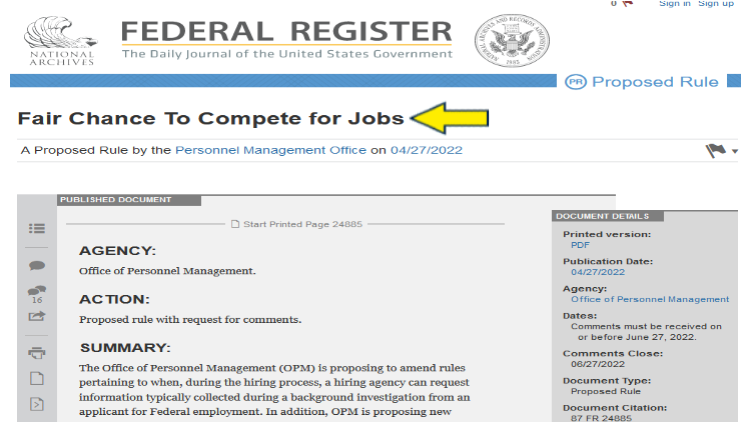
The Fair Chance Act removes some restrictions for convicted felons who want to obtain work with the federal government.
The new law took effect in December 2021 and aims to remove certain barriers to Federal employment for felons. Under the Fair Chance Act, Federal agencies and employers with Federal contracts are prohibited from asking about a candidate’s criminal history until after a conditional offer of employment has been extended.
The idea behind this law is to allow felons to get their foot in the door (so to speak) and have the opportunity to demonstrate they are qualified for a position before being set aside because of their past mistakes.
Exceptions are made for highly classified jobs or jobs where employers are legally required to consider past crimes (See the Office of Congressional Workplace Rights for more information about this law).13
What Are Some Careers That Accept Felons?
While it normally gets easier over time for felons to secure meaningful employment, it can be very difficult starting out. Generally, felons will have an easier time obtaining jobs that are not public-facing or involve extensive client contact. Some careers that accept felons may include:23
- Computer Technology (IT)
- Sales
- Restaurant Industry
- Freelance Writing or Editing
- Construction
- Landscaping
- Factories
Guidelines for License Applicants With Criminal Convictions: What Professional License Can a Convicted Felon Get?
Among the occupations and career paths that are restricted for individuals with criminal histories, professionally licensed occupations are among the most prominent. Many people want to know what professional license can a convicted felon get, but each state has its own laws which govern who can be professionally licensed in the state and many states require that applicants demonstrate their good character.14
On the flip side, applicants can often apply for a waiver for their criminal past when seeking licensure.
The Texas Department of Licensing & Regulation provides Guidelines For License Applicants With Criminal Convictions in the state of Texas. Many other states have similar information available on their licensing sites (See Illinois Department of Financial & Professional Regulation).
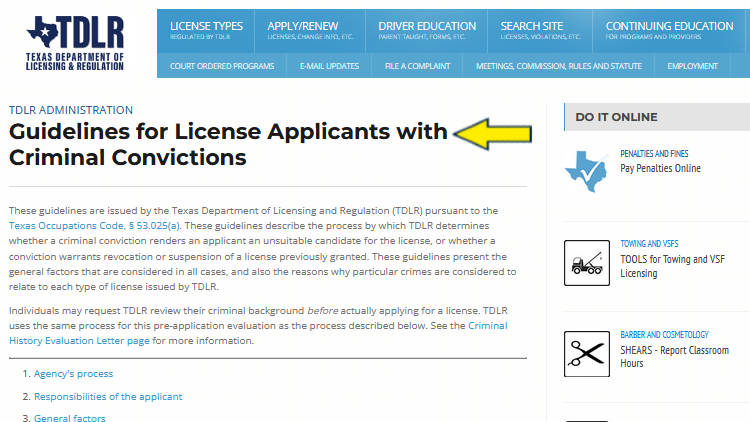
Some states, like Texas, provide a list of professional licenses that can be obtained by convicted felons, as well as guidelines for finding the profession that will overlook certain crimes.
In general, license applicants can expect to be asked to disclose criminal convictions on their applications, and most states will run criminal background checks, so honesty up front is key.
Most criminal convictions, even felonies, will not result in an automatic disqualification for licensure, and the information is usually referred to a review board.
The review board will consider the nature and severity of the crime, how long ago the crime occurred, and how the crime bears upon the license and responsibilities. Applicants that can demonstrate steady employment, financial independence, a record of good conduct, and cooperation with the court system may receive a positive decision from the review board.22
The following sections look at how specific professional licenses may be impacted.
Can a Felon Get a Barber License?
Individuals who are curious about what professional licenses a felon can obtain must consider two factors: the state of residence and the nature of the felony crime.
The answer to “Can a felon get a barber license?” is YES in most states, as long as the nature of the felony crime does not prohibit it under state law. Crimes that would prohibit an individual from getting their barber license usually include (varies by state):22
- Sexual misconduct
- Child victimization
- Homicide
- Kidnapping
- Assault
- Illegal manufacture/delivery of controlled substance
And may also include:
- Acts of terrorism
- Consumer fraud
- Possession of a deadly substance
- Armed robbery
- and other crimes that the law may or will provide
Can a Felon Get a Liquor License?
There are various types of liquor licenses that an individual may need depending on whether they intend to manufacture the product, supply the product, or sell the product through a business.
Individuals should contact their state’s regulatory agency (e.g. Kentucky Department of Alcoholic Beverage Control) to determine which type of license is necessary.
Determining can a felon get a liquor license depends upon the individual’s ability to demonstrate that they are a legal citizen, a legal voter, a taxpayer, and have good moral character. Individuals with a revoked license or who were disciplined for alcohol-related offenses in the past are unlikely to obtain a license, as are individuals with gambling or DUI convictions.
In general, a felon has a greater chance of obtaining a liquor license if their crime occurred more than 5 years ago.8
Can a Felon Get an HVAC License?
A heating, ventilation, and air conditioning (HVAC) license is another commonly sought professional license that can be restricted for felons as the contractors must enter clients’ homes. Can a felon get an HVAC license depends, again, on the state, type of felony, and length of time since the crime?
Some felony crimes which may result in disqualification include:17,22
- Felony fraud
- Murder
- Sexual crimes
- Crimes of violence against a person
- Child victimization
- Trade deception
- Crimes against property (theft)
Can a Felon Be a Real Estate Agent?
Real estate is probably one of the most restricted professional licenses given the level of trust and responsibility an agent carries, so can a felon be a real estate agent? Yes, it is possible in some states for felons to obtain their real estate license, particularly if enough time has passed and if the crime does not bear directly upon the responsibilities of the agent’s position.10
Felony crimes that create significant challenges for aspiring real estate agents include:17
- Crimes of a violent or sexual nature
- Crimes of moral turpitude
- Financial crimes (embezzlement, fraud)
Can a Felon Be an Insurance Adjuster?
Insurance adjustment is another career where the individual holds a position of significant trust with clients.
An insurance adjuster often has access to a client’s home, property, confidential information, and finances. It is crucial for insurance adjusters to be trustworthy individuals, leading to the question of can a felon be an insurance adjuster.
As with real estate, insurance is a sensitive area, and some felons will be automatically barred from licensure based on the nature of their crime. Other felons may qualify for waivers.
To obtain a license as an insurance adjuster, the individual must have paid all court fees and completed all sentencing requirements before applying, and many states require that a period of 5 to 7 years pass before application.
Some felony crimes may result in a permanent barrier to licensure, such as:16
- A first-degree felony
- A capital felony
- Money laundering
- Embezzlement
- Financial crimes
Can a Felon Be a Home Inspector?
As with many states’ professional licensing regulations, home inspector licenses are reviewed and awarded on an individual case basis. There is hope for individuals asking can a felon be a home inspector as long as they can demonstrate good conduct and evidence of changed behavior since the time of their crime.
As with other licenses, crimes of a violent or sexual nature are the most likely to preclude licensure.5
Can I Get a Cosmetology License With a Felony?
Many people have asked, “Can I get a cosmetology license with a felony?” A cosmetology license is typically very similar to a barber license, including the restrictions upon it.
Finding out if can you get a cosmetology license with a felony will depend on the state of residence and the nature of the felony crime. Sexual crimes, crimes against children, and crimes against other people may prevent someone from acquiring their cosmetology license.22
Which States Allow Felons To Practice Medicine?
Historically, healthcare has been one of the fields that is more difficult for individuals with felony records to obtain work in due to working with controlled substances and vulnerable populations. While many states have laws prohibiting felons from working in the healthcare industry, some state legislation has begun to lift these prohibitions.
For example, the states of Illinois and Pennsylvania now allow individuals with certain felonies to petition for healthcare licenses.6
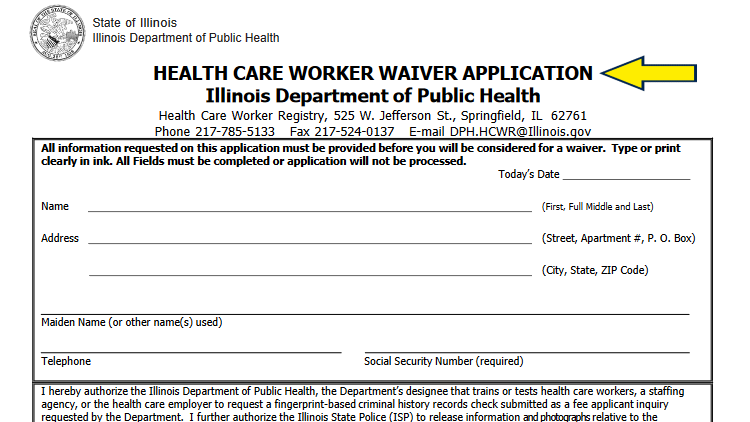
Some states now allow felons to obtain healthcare licenses and be employed in the healthcare system, but there are generally conditions that apply.
Doctors who are permitted to continue practicing after a felony conviction or who, against the odds, obtain a medical license with a felony record will have to contend with the stigma of their conviction and the impact on their professional reputation for years to come.11
What Professional License Can a Convicted Felon Get: Can a Felon Get a Medical License?
Obtaining a medical license with a felony criminal record can be very challenging for a number of reasons, and can a felon get a medical license depending primarily on the type of felony crime and the age of the individual when the crime was committed.
Because juvenile criminal records may be sealed, individuals who were 17 years or younger when they committed a crime may be in the clear.
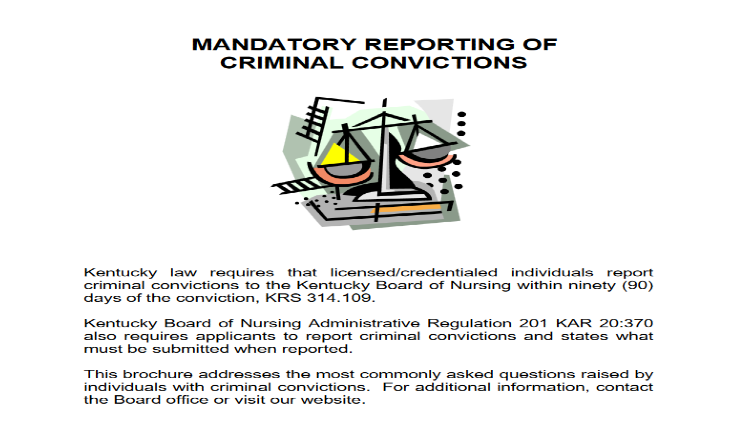
Most states make mandatory reporting of criminal conduct the law, so healthcare professionals who ignore it, can face further charges.
Medical schools will be hesitant to admit felons because of the difficulty they will face getting licensed. The felony crimes which are most problematic are violent or sexual crimes against others, crimes of dishonesty, and crimes involving abuse or distribution of controlled substances (See Kentucky Board of Nursing for more information).11,19
What Professional License Can a Convicted Felon Get in Each State?
So many of the laws impacting felon employment and licensure are implemented at the state level, and individuals want to know exactly what professional license can a convicted felon get in each state.
Understanding relevant state laws are the first part of the equation and knowing which felonies are eligible for expungement and how to petition for expungement is the second part. Because expunged criminal records should not be considered for the majority of professional licensures, expungement is always the path to take when eligible.
Some of the most “felon-friendly” states are California, Kansas, Colorado, Texas, and Massachusetts (among others).7
The following table looks at the laws and regulations in each state and how professional licensure is impacted by state law. See a full list of what professional license can a convicted felon get by state below.
What Is a Professional License Verification?
Some job positions require individuals to have an active and valid professional license, and the employing agencies or companies can face significant liability if they employ someone who is not licensed. This is why it is so important for employers to confirm professional licenses as part of the background check process.
A professional license verification involves contacting the agency which issued the candidate’s license to ensure the license is valid, current, and without issue. However, the employer should be doubly safe and check with any prior states/jurisdictions where the candidate resided to ascertain whether there were disciplinary actions.18
How Do I Do a Professional License Search
Conducting a professional license search is actually pretty simple and can be done in a few simple steps.
Step 1: Identify the licensing board in the relevant state with an internet search (e.g. “[state] professional licensing agency”].
Here are a few licensing organizations as an example: the Kentucky Department of Professional Licensing, the Indiana Professional Licensing Agency, and the Texas Department of Licensing & Regulation.
Step 2: Select the license and profession type from the list and enter the required information (name, state, zip code, etc.).
Kentucky
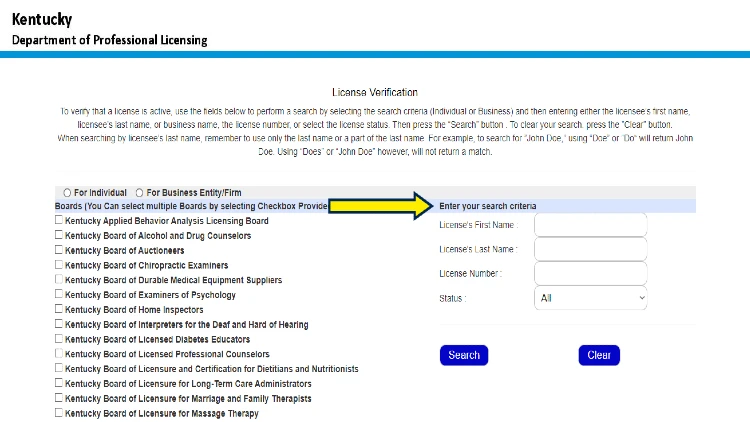
License verification platforms are available in most states, allowing anyone to search and confirm a valid license holder, based on profession.
Indiana:
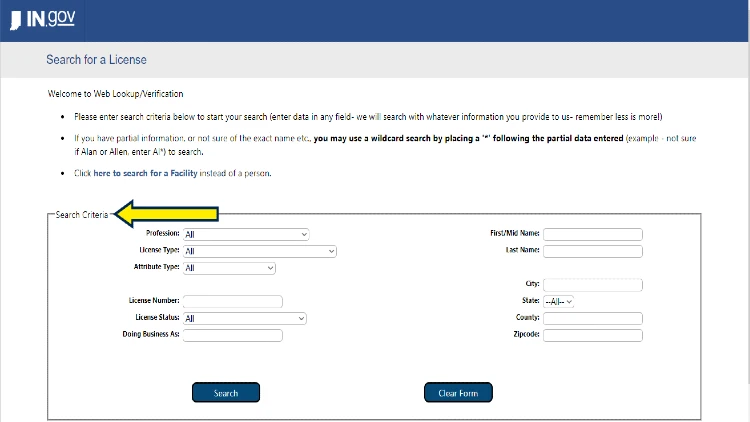
To perform a professional license search in Illinois, users need all or partial data to enter into the search portal.
Texas:
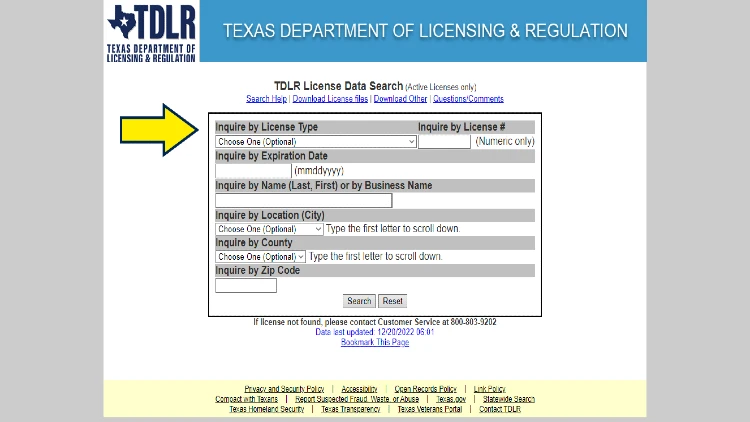
Texas allows users to search for license verification by location as well as type.
Step 3: Click “Search.”
What Felonies Disqualify You From Getting a CDL?
There are even some crimes that can bar an individual from obtaining their CDL (Commercial Driver’s License). For a better understanding of this, individuals need to look at how long does a felony stay documented on your record and exactly what felonies disqualify you from getting a CDL.
CDLs are regulated by the Federal Motor Carrier Safety Administration (FMCSA) and by individual state law. Most large commercial driving industries will run background checks and the crimes that are most likely to be problematic include:3
- Felony DUI or recurring misdemeanor DUI
- Vehicular manslaughter
- Any felony committed with a commercial vehicle
- Serious crimes against persons and property (arson, kidnapping, aggravated assault)
What Disqualifies You From Getting an Insurance License?
What disqualifies you from getting an insurance license depends a lot upon the state of residence. In fact, in some states, even when an individual is criminally charged but not convicted, a background check can still reveal this information.
Insurance agents work with a lot of confidential information and large sums of money, so it can be difficult for felons to get an insurance license particularly if the felony crime involves:12
- Money laundering
- Fraud
- Embezzlement
- Other financial crimes
- Violent crimes against persons
- Crimes of moral turpitude
How To Find Out if Someone Is a Felon
Whether a person needs to know how to uncover someone’s felony history for free or the steps to check if you have a felony record without spending money, there are some simple easy steps that can be taken to find this information.
- The Federal Bureau of Prisons (BOP) Inmate Locator can be used to look up any federal inmates who were released after 1982
- To look up federal inmates released prior to 1982, individuals should use the National Archives website.
- Use the free National Sex Offender Public Website to check if someone is registered as a sex offender.
- Order an FBI Identity History Summary Check to see personal records and obtain your rap sheet.
- Use the National Center for States Courts (NCSC) to locate the appropriate state court for searching state records.
- Contact the State Police for the jurisdiction to inquire about personal criminal records or another person’s criminal record.
Life after a felony conviction is an uphill climb, and many individuals who earnestly want to make positive changes find themselves limited in the type of job they can get. Although many states are gradually working towards felony-friendly legislation to open doors for former felons, these individuals still have to struggle to thrive and even survive.
This article explores what professional license can a convicted felon get, including a full list for each state.
Frequently Asked Questions About What Professional License Can a Convicted Felon Get










